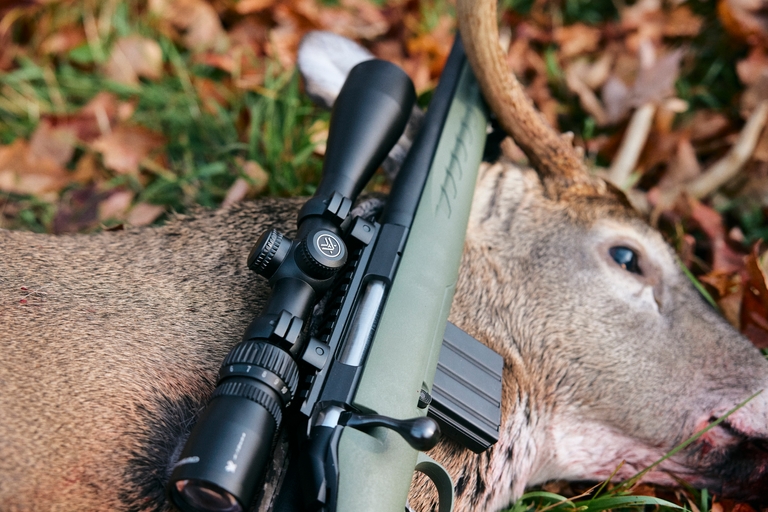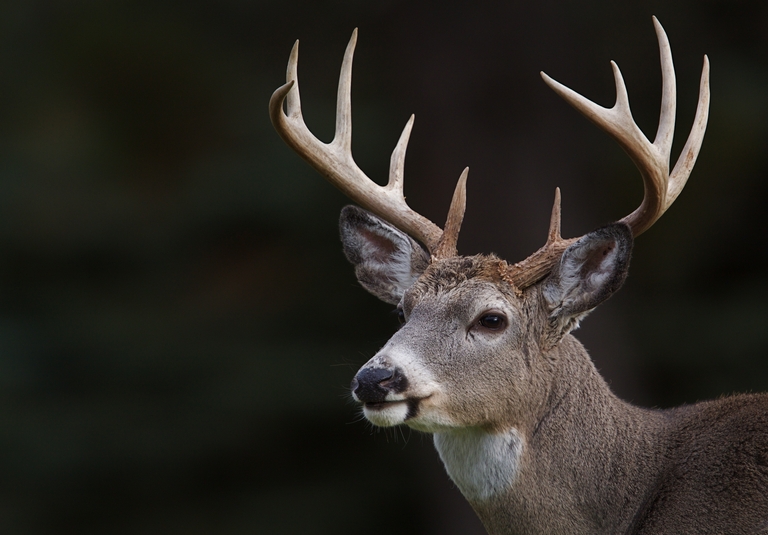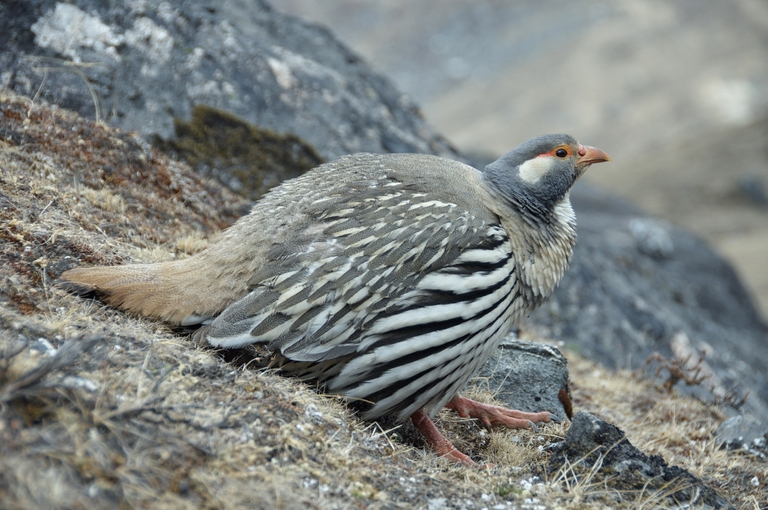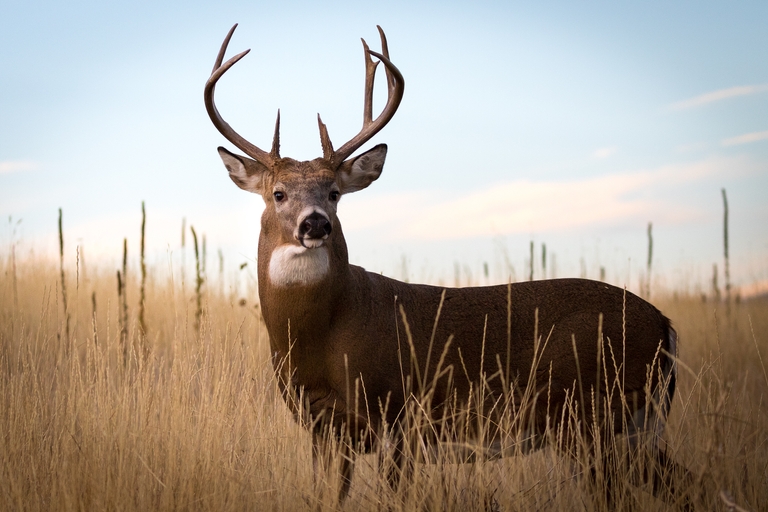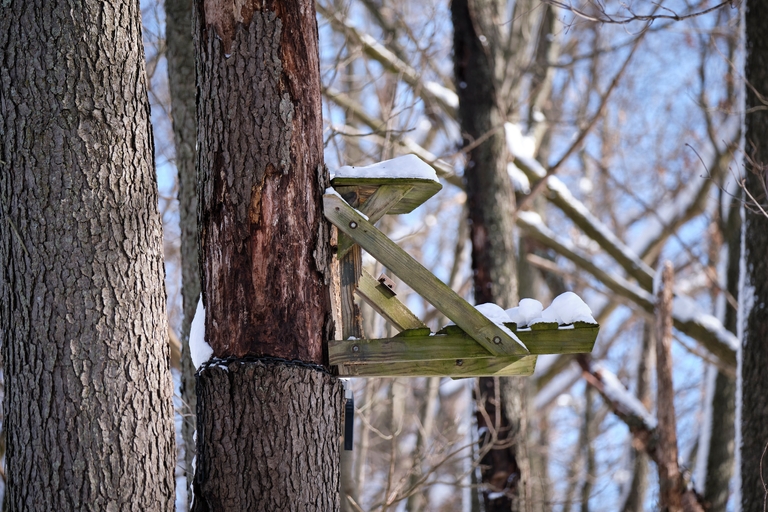Insect Repellants vs. Scent Control for Early Season Hunting
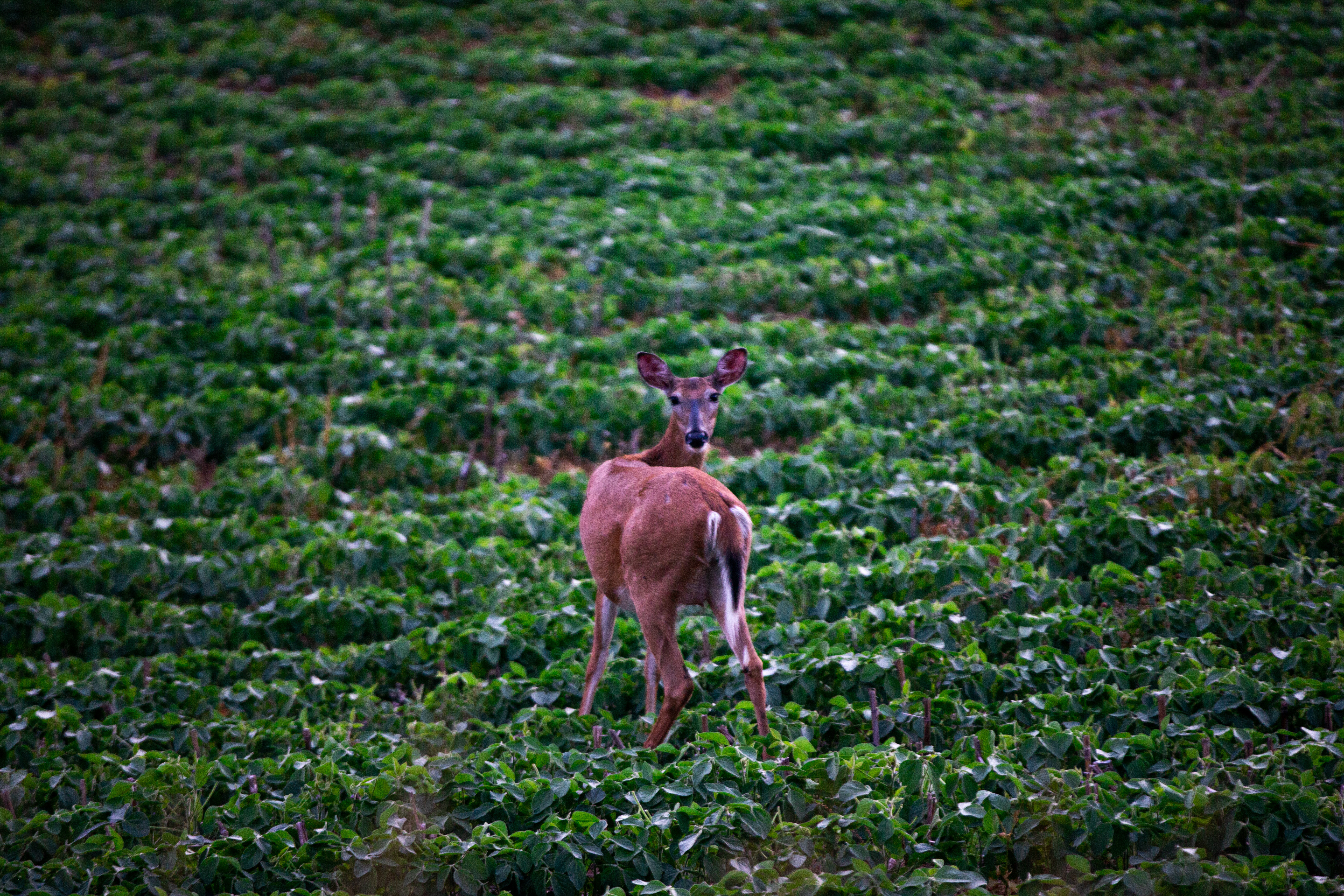
Every September and October, hunters return to fields and forests that are still green and growing for early-season hunts. However, they face one major problem: the old proverbial situation where the hunter becomes the hunted . . . by bugs.
If grass and leaves are still growing, you can bet it is warm enough for mosquitoes, ticks, chiggers, and gnats to be ready to feed on you. Tiny insects might not seem as intimidating as being stalked by a cougar or bear, but while they may not put you in the hospital instantly, they can ruin your hunt — or give you Lyme disease or West Nile virus that could put you in the hospital later.
While thousands of insect repellants are available, hunters face another unique problem when combatting bugs: many game animals have a keen sense of smell.
Running off game to save yourself from bug bites defeats the point of hunting, right? On the other hand, swatting mosquitoes, incessantly scratching itches, or choking on a cloud of gnats can alert animals to your presence just as quickly.
So, let's look at some options that can protect you from insects and keep your hunt productive.
ThermaCELL

Just about every hunter has heard about ThermaCELL repellants by now.
A portable ThermaCell device includes a tiny heating element and a small butane bottle that heats up a pad soaked in insect repellant. The repellant vapor spreads out and creates a zone of protection around you to keep mosquitoes and other flying biters away.
It's harmless to you and other animals, and ThermaCELL makes a variety of repellants with an "earth" cover scent built in specifically to keep from scaring animals away.
The product gets great reviews, especially from bowhunters who often sit in tree stands for a long time and must remain motionless since the game needs to be very close for a shot.
However, there are two issues with ThermaCELL products.
- First, the repellant zone won't work while moving since it will constantly trail behind you.
- Second, it doesn't repel ticks and chiggers that you encounter when you're on the ground and moving.
If repelling mosquitoes, black flies, or gnats is your primary concern, you should definitely consider a ThermaCELL device for your early-season hunts.
Permethrin
Permethrin is actually an insecticide, meaning it doesn't just repel bugs; it kills them. It's a chemical made in laboratories that mimics a natural insecticide produced by chrysanthemum flowers called pyrethrum.
Permethrin does not have an odor, so it doesn't alert game animals to your presence. You can find large bottles at farm and ranch supply stores designed to apply to livestock or around houses and barns. You can mix it per the directions and spray it on your clothing. Or you can purchase it pre-mixed from at least one manufacturer that creates spray bottles and aerosols designed specifically for human clothing.
Permethrin binds to fabrics and can even last through several washings of your clothes. Some clothing manufacturers are even making clothes with Permethrin built in, which will last for the life of the clothing!
According to the World Health Organization, Permethrin isn't absorbed by human skin, so it is safe to spray directly on you. In fact, it's the main ingredient in some medicines designed to kill lice on humans.
If you're uncomfortable applying it to your skin and are wearing shorts or a short-sleeved shirt while hunting, you might also need to use a repellant.
Remember: though they will die later, mosquitoes can bite you first, even with Permethrin. If you hunt in an area known for ticks that carry Lyme disease, you should apply Permethrin to your clothing.
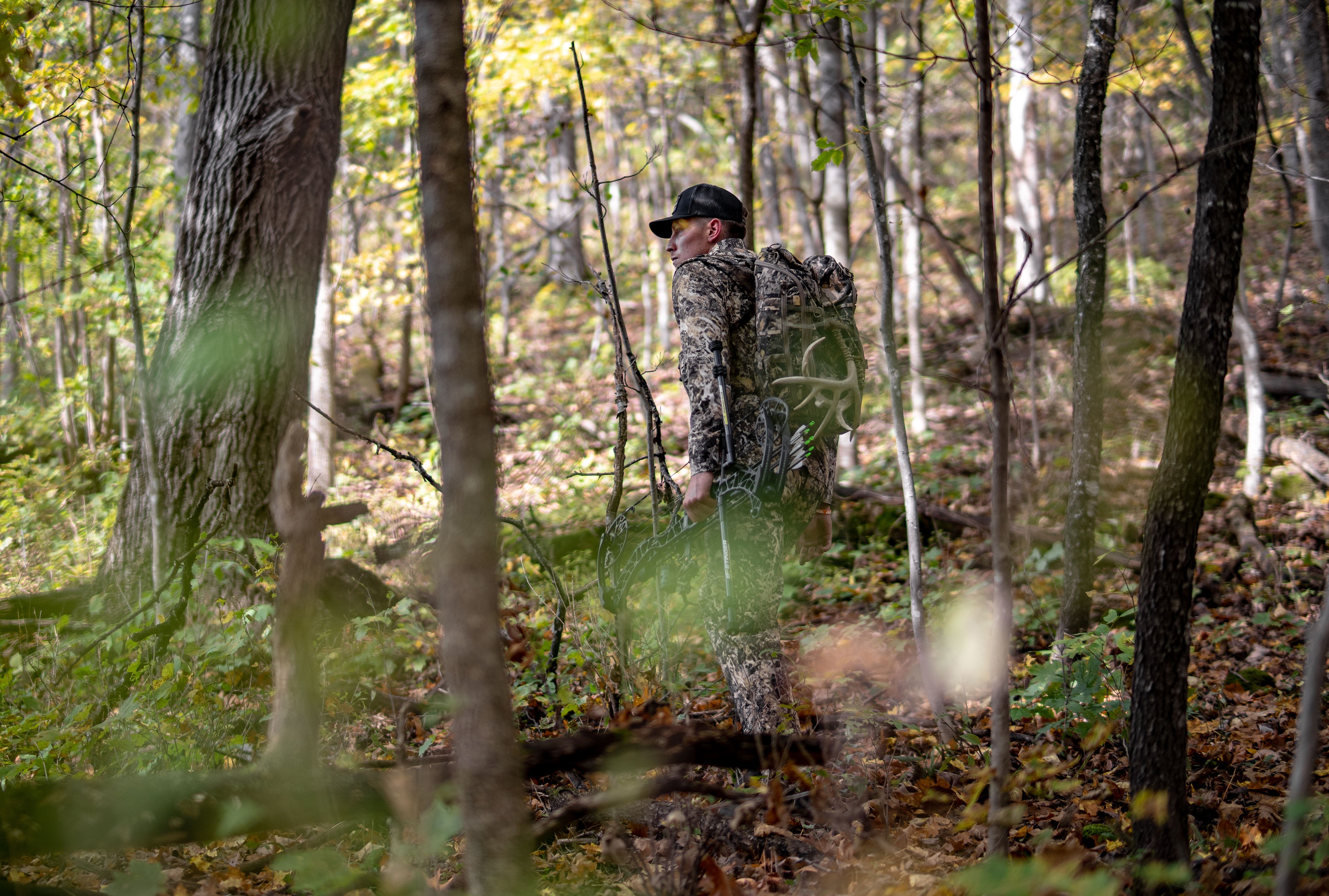
DEET Repellents
Just about all testing and authorities have reached one consensus on insect repellants: DEET is the best.
DEET was developed by the U.S. military and used by soldiers during missions in tropical areas. It's not an insecticide like Permethrin but a very effective repellant for all insects.
However, it's not odorless and is always mixed as a percentage of an aerosol or spray insect repellant. At very high concentrations, DEET was found to cause skin irritation for some people, and extremely rarely, it caused more severe reactions.
So, you'll see some "outdoor" repellants with 20 to 40 percent DEET, which are ideal for use when hunting. Just know that you'll have to be mindful of wind directions because it can and will spook game animals with sensitive noses.
Natural Repellents
Sometimes, something natural is the best way to deter insects while protecting yourself from potentially harmful chemicals. Here are a couple of options to try during your next early-season hunt.
Sulfur Powder
Sulfur powder might be the oldest commonly used insect repellant/pesticide in the world. To you and me, it stinks – but to bugs, it kills.
Powdered sulfur can be put into a tube sock, which makes a great "duster" as you pat the sock on your shoes and clothing. It's also safe to put on your skin but can irritate your eyes.
So it's safe and effective, but it smells.
Actually, it doesn't smell as much as you would expect, not as much as a lit match, anyway. However, there isn't much information available about whether it is a smell that deer and other game animals dislike.
Since it's a natural odor found in some water and skunk scent, sulfur might just be the ticket for hunting. It's also inexpensive.
Essential Oils
Citronella, orange oil, peppermint, lavender, and many other natural oils and scents have been used as bug repellants for years. Any and all of them may be effective at times, but you don't find them used in any of the commercial insect repellants that tend to feature DEET.
You would think that manufacturers today would want to use anything natural that is also effective since consumers care a lot about safety. That's an indicator they may have done testing and found the natural ingredients are not very effective compared to DEET.
However, if you have sensitive skin or allergies to any of the products mentioned above, you might try some natural repellants. All of them will be very aromatic, though, which means the animals you're hunting will smell them.
Whether they will be bothered, though, is a question that you'll have to find out yourself.
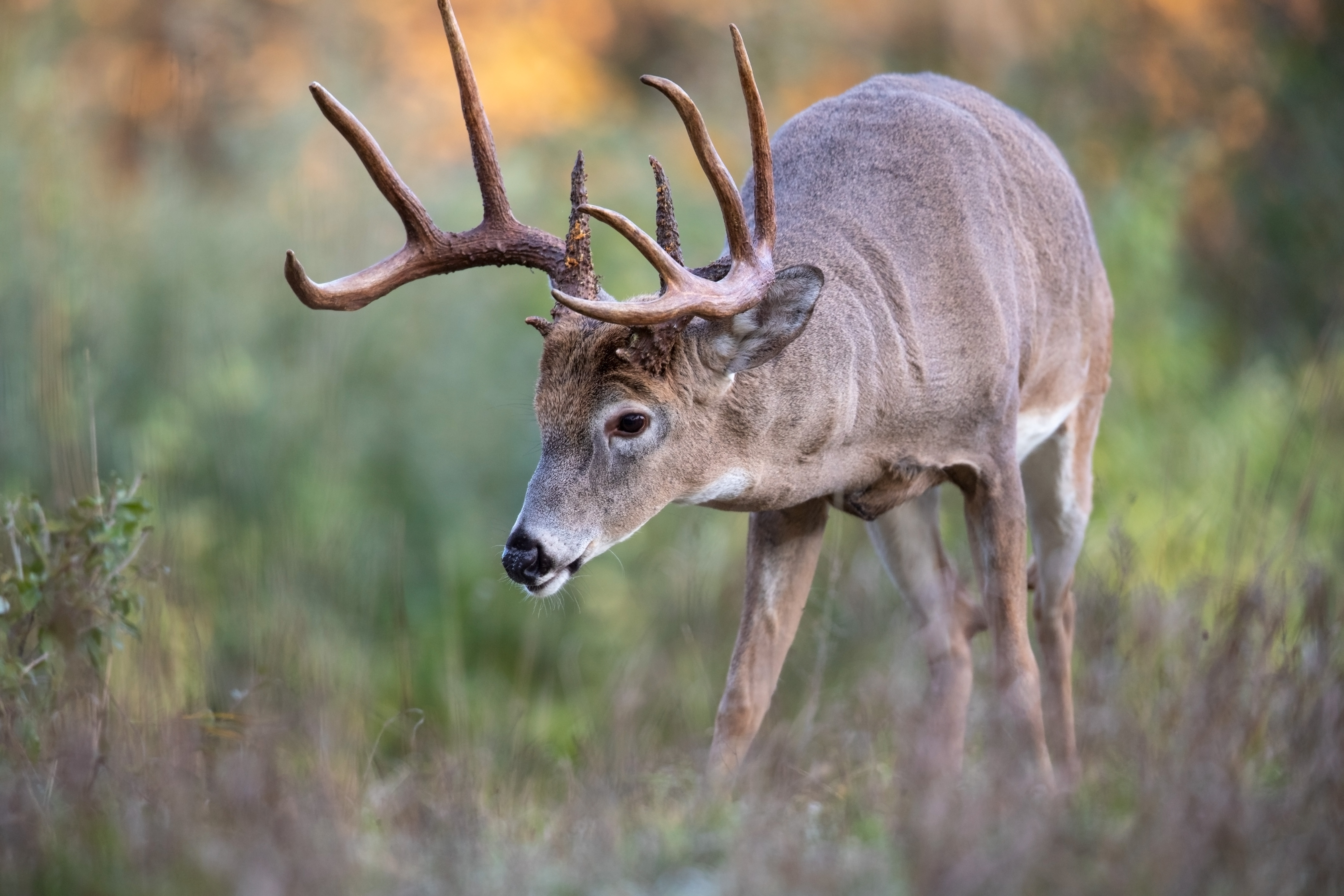
Scent vs. Movement
If you're still concerned about the scent from any of the choices above, you're limited to wearing head-to-toe clothing with mosquito netting. However, that can be hot when it's still early in the season, and mosquitoes have a way of drilling right through thin cloth.
No matter what repellant you use, it won't improve your hunting success if you're still fidgeting out in the woods. The eyesight of elk, whitetails, and turkeys – most animals except hogs, in fact – is much better than humans. While they have to be downwind to smell you, they can see you from anywhere.
Avoiding bugs makes it much easier to stand or sit still, but you still have to do your part and limit your movements.
Use Scent Control, Repel Insects, and Stay Safe with Hunter Education
We hope these tips about repelling bugs and masking your scent help you have a more successful early-season hunt! Remember: no matter when you hunt or which season, staying safe must be a priority.
We want you to avoid bug bites and injuries when in the field. While many states require hunters to pass a safety certification, we also believe it's a smart way to prepare for a long lifetime of hunting!
Our Hunter-Ed courses make it easy to learn crucial safety essentials, like how to carry a firearm, stay within your safe zone of fire, wear the right amount of blaze orange to be visible to other hunters, and stay safe when hunting from a stand.
So, before heading out with your insect repellent for your first early-season hunt, make sure you're safety certified. Find the course for your state and start learning!
Good luck with your early-season hunts, and may your skin be bite-free!
Originally published October 25, 2014. Content updated June 3, 2024.

